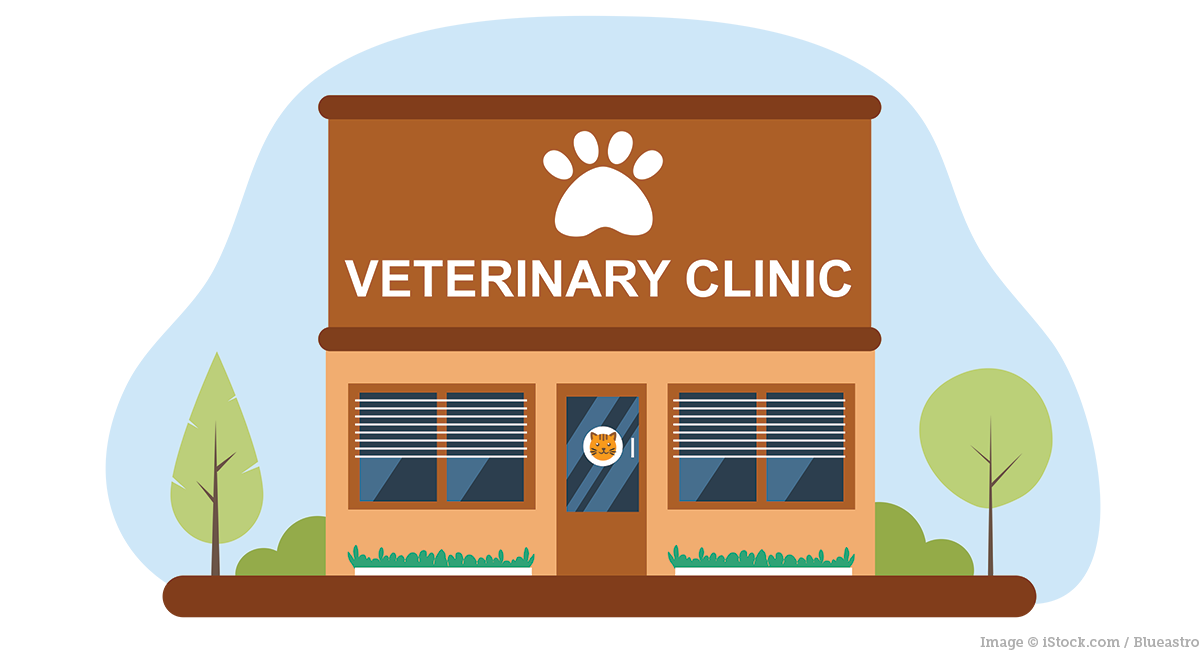1 Sept 2023
Many routes to practice ownership exist, so it stands to reason there’s no “one size fits all” exit strategy, either. Vicky Robinson looks at the best options in this fast-changing landscape...

Image © iStock.com / gpointstudio and iStock.com / monsitj
I am going to make a couple of assumptions. Firstly, if you are reading this, you own a veterinary practice or have a close friend, relative, or boss who does; and secondly, that you fall into the category who would not consider themselves a business expert.
I have been asked to take an “expert look”, not from a place of business education, but from a feet-on-the-ground perspective for helping vets find the right exit solution for their personal circumstances, and having knowledge of what’s going on with the corporate acquirers.
The group of people I would, therefore, assume this topic might be of interest to are the practice owners who didn’t necessarily see themselves ever being business owners, and don’t have a detailed plan from day one to exit. Of course, many shapes and sizes of veterinary business exist: the one-man band, the mobile practice, small animal, mixed, equine, referral – the list is extensive.
If you are the sole owner, then the decision-making process for an exit is much easier, with only one person’s needs to satisfy, while multi-partner practices face the challenge of being fair on each other, as well as doing the right thing. On several occasions, we’ve tried to help senior partners who wish to retire and take their corporate millions, while the younger partners want to carry on with life as normal – or, sometimes, the reverse. So, if it’s not too late for you, a useful piece of advice for any partnership is to have a watertight exit detailed in your partnership agreement. If you’ve missed that opportunity, then find a great mediator.
Now, let’s take a general look at the current market and then some options for your practices.
How have the Competition and Markets Authority (CMA) investigations affected your selling choices?
If someone had predicted 10 years ago that the UK would be home to numerous millionaire and multi-millionaire MRCVSs, many of us who would not have believed it. We sometimes hear negative views of veterinary corporatisation, but there’s no arguing that they have bought wealth and opportunity to many in the profession.
A “land grab” of practices has occurred over a few years, before a few weeks’ silence over our first lockdown period, and then another mad bubble of buying. The practice sales market is quieter by comparison, since the first CMA investigations at the end of 2021, and now that four of the major acquirers have been under investigation, they all have to act with some caution.
Each practice’s actual location has to be carefully considered before spending any resources on reviewing the business details to make an offer. This absolutely does not mean that you can’t sell your practice to a corporate now, or that you won’t be offered a higher multiple than from a traditional practice sale.
The land grab situation has been replaced with a more strategic acquisitions model, and a well-run, profitable practice will still attract a good value.
Just to be clear, it’s not always easy to guess if a certain corporate could buy a practice. The CMA regulations are based on client choice in a geographical area and ownership of full-time vet equivalents within that area; a job for someone equipped with client postcodes and a clever computer programme, I suspect.
If you keep up to date with your VBJ and Vet Times reading, you’ll know that the past two CMA investigations have resulted in around 20 practices (some of these multi-site) being divested, and this happened (and is still happening) within a fairly short timescale.
Some practices have reverted to their original ownership, and through the bidding and buying process, we have seen the emergence of some potential new owners and existing practice owners looking to form new groups. It’s very early days, and we will no doubt be learning about the opportunities the “new kids” will present over the coming months, and it seems they will bring with them an appetite for growth and new opportunities to the sales market.
Talking of new kids, the profession continues to see start-up practices like never before. Vet Dynamics Conference (21-22 September)will host a new start-up stream to enable these budding entrepreneurs to learn from industry leaders.
The majority of these potential new owners are working in practices (hopefully not yours) and stifled by the lack of opportunity to have any ownership, fed up with working too hard, not feeling valued or having any autonomy. Starting their own practice from scratch seems their only answer if they are going to stay in the profession, and what we have found in our budding dynamic match-making service is that many of these people would happily buy the whole or a share of an existing business.
One of these start-up new kids could be your eventual exit ticket, and your practice can remain independent.

The smaller one-to-two-vet practices are less likely to attract a corporate offer, and any new mini-corporates would see the risk from an isolated practice if the owner is one of the practising vets.
The start-up guys are a good possibility, and you could consider who’s around you: the people you may see as your competitors may look at you as a convenient and ready-made branch surgery. This might not feel like a comfortable conversation to start, but an independent advisor or broker could ask any neighbours anonymously if they would consider expansion.
The over two-vet sized practices, assuming they are performing well (turning over £250,000 roughly per full-time vet equivalent) could potentially be out of the pocket range for an independent buyer. However, a partnership and staged buy-out could work. We certainly wouldn’t recommend going into this without either party doing careful due diligence personally; getting out of a bad partnership can be more tricky than ending a bad marriage. Always take (vet-specific) expert legal advice on partnership contracts and cessation agreements. Practices of this size, and bigger, will be of interest to our “new kids”, and buy-out options, partnerships, and joint ventures may be involved. All of these options have been mooted: we will see who and what finally emerges into the veterinary public domain.
We still have some amazing die hard, multi-partner, small animal, equine, mixed, or mini-referral independent practices, offering employment for sometimes hundreds of people. These have resisted the corporate lure so far; it may be that the partnership agreement is clear on the senior’s exit and the only way is to sell shares to another partner or introduce a new partner.
Challenges occur when the practice is so big and profitable, and borrowing isn’t so attractive. Ways exist for the practice to become the bank and help new blood enter the partnership.
If you are reading this and planning well in advance of your retirement, a great tax-efficient option to look at is forming an employee ownership trust.
In a nutshell, you can sell more than 51% of your business, valued at the current market values (what a corporate might pay) into the trust, and you are paid personally and tax free from the business profits.
Some, not all, accountancy companies can advise and deal with this. Lots of advice is available should you wish to explore this option, and also a free webinar if you’d like to learn more at tinyurl.com/4pm4jrns
Most people know roughly what their house is worth, maybe their car, but not that often how much their business could sell for.
It can be a pleasant surprise – especially knowing the anticipated corporate multiple. On the odd occasion, we’ve seen complete disappointment stemming from partial knowledge, such as hearing a boasting vendor stating they received three times their turnover, which of course could be their reality, and assuming that goes for every business. This calculation has no relation to any other business, as they are valued on a multiple of EBITDA (earnings before interest, tax, depreciation, and amortisation).
If this is a mystery to you, wherever you are in your journey, your current business value is a useful piece of information, and we will gladly give you a free-market valuation that will put you in an informed place for planning your future.
Some people find planning exciting, some boring, and most vets in practice simply don’t have the time to think about it.
Leaving it until the last minute might not be the best strategy, so why not carve out some time, speak to a trusted advisor, get a free valuation from us, and have a chat to understand your personal options? Many experienced people are out there who can help you; there’s no need to feel alone or uninformed.